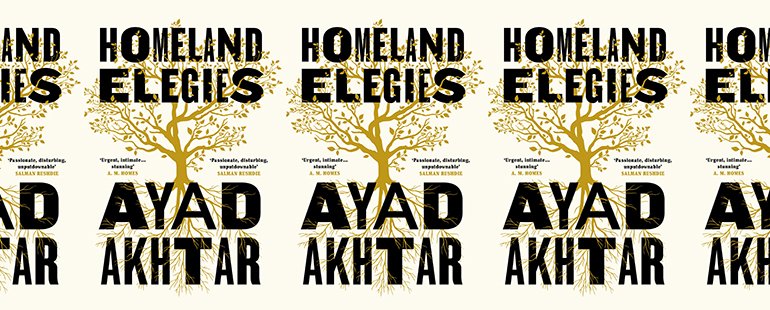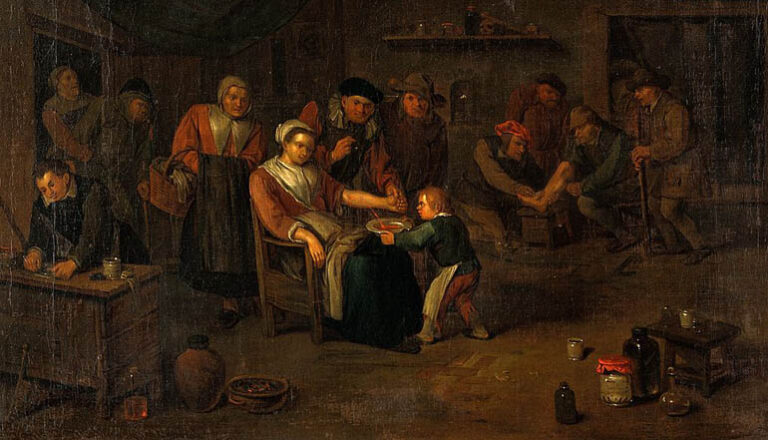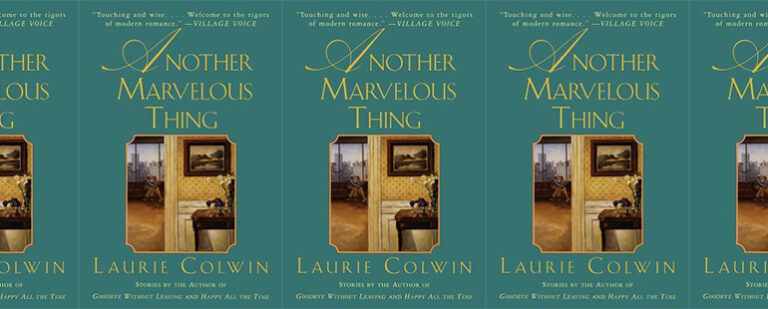Homeland Elegies and America’s Liberal Project

In Ayad Akhtar’s new novel Homeland Elegies, the narrator, Ayad, a writer who shares Akhtar’s name and biographical circumstances—Akhtar is a renowned novelist and playwright, and winner of the 2013 Pulitzer Prize for Drama—bemoans at one point the critical reaction to his latest play, which has just debuted in Chicago. Although reviewers found the work dramatically compelling, they uniformly reviled its depiction of a morally ambiguous Muslim protagonist. As Ayad says, “[Critics] yearned for a Muslim character driven to valiant ends by unimpeachable motives, not the tortured, vindictive antihero on display center stage for so much of the evening.”
Because Homeland Elegies is a complex blend of fiction and reality, it’s unclear whether Akhtar is describing one of his actual works. But the plot of the fictional play bears a resemblance to his 2016 thriller, The Invisible Hand, which depicts a financier kidnapped by Pakistani terrorists, as well as his 2012 drama, Disgraced, which focuses on a Pakistani Muslim lawyer who hates Islam and blames his childhood faith for 9/11. According to Ayad, the issue reviewers seem to have with his work is that, by refusing to portray his Muslim characters as “victims,” he’s breaking a taboo in American writing:
In our era, one increasingly without political nuance, Muslims were just the minor premise of the social syllogism that formed our American nation’s outraged theory of the downtrodden: you were either for the victim or against her. Muslims were victims. Therefore you could only be for a Muslim or against her. It didn’t matter if you were one already. Art, like everything else, was drowning in the tidal wash of ubiquitous and ascendant anger. Authenticity was measured now in decibels. Every utterance, every expressive gesture, was read as a pledge of allegiance to some discernible creed. The politics of representation were in ascendance, increasingly mistaken for the politics of narrative craft.
Akhtar’s formulation here—“the politics of representation”—is something you typically see criticized by the political right. “Liberal do-gooders think they can change the world through the politics of representation, diversity training, and inclusion seminars,” someone like Jordan Peterson or Ben Shapiro might lament. But that isn’t Akhtar’s argument in Homeland Elegies, one of 2020’s most compelling reads. Instead, in his unusual hybrid of novel, autofiction, and linked critical essays, Akhtar poses a challenge to liberal consensus from a different perspective—not by denying the existence of America’s foundational inequalities along lines of race, class, and gender, but by questioning whether the liberal project of advancement through representation is capable of catalyzing the structural changes necessary to address them. There is, Akhtar’s novel asserts, a dark truth at the heart of the “purported moral vision” of American liberalism, and its nature is not merely cultural, but also fundamentally economic.
Americans tend to conceive of “liberalism” as a vague, humanistic, generally progressive concept, coalescing around individual rights and freedoms. In much contemporary American writing, these admirable ideals are distilled into what might be termed a “liberal project”— “fiction as a form of empathy training,” in Elif Batuman’s critical formulation. By exposing audiences to new perspectives and realities, the thinking goes, writers educate their readers, nurturing in them the practice of empathy. Herein lies, in part, the taboo being violated by Akhtar’s plays: with his unlikeable characters, who steadfastly, as one critic charges in Homeland Elegies, “refus[e] the promise of America,” Akhtar seems to be rejecting the dream of a liberal melting pot. “It had never occurred to me,” Ayad at one point says, “that jingoism . . . was part of my job description.”
Akhtar’s book, which has a recursive, nautilus-like structure, jumping forward and backward in time, is a catalog of “misfits” like Ayad, people of color who pride themselves on rejecting liberal pieties and embracing alternative visions of American identity. First among them is Akhtar’s fictionalized father, Sikander, an intelligent, well-read man; a Pakistani Muslim immigrant; one of America’s top cardiologists, renowned for his generosity and learning—yet someone who, in the 2016 election, proudly casts a vote for his one-time heart patient, Donald Trump. “He’s a fighter,” Sikander explains to his son, who’s shocked to discover his father supporting a candidate openly advocating a Muslim ban. “You know what a fighter does? He fights. That’s why we love him!”
Similar to Sikander is Ayad’s friend Mike Jacobs, a Black entertainment lawyer and staunch libertarian. Despite the fact that his father was once a law clerk for the legendary Civil Rights attorney Spottswood Robinson, Mike has given up on the Democratic Party and is planning to vote for Trump in the 2016 election. Black people, Mike tells Ayad, are “always waiting for someone to save us, make things right, cut us some slack because we deserve it. Sure, we’ve been through a lot . . . but they’re not gonna change this country for our sake.” At least Republicans are “honest about it.” At least they don’t sugarcoat their disdain for the poor and downtrodden—refusing to hide the raw truth that, in America, “everything [is] about getting rich.”
A third section of the book, set during Ayad’s childhood, focuses on Latif, Sikander’s best friend from medical school in Lahore, who immigrated to America with Sikander in the late 1960s. Sweet-natured, gentle, and devout, Latif finds himself drawn to the cause of Afghan liberation espoused by Osama bin Laden in the 1980s (and which was given financial aid, at the time, by the U.S. government). Although Latif runs a thriving medical clinic in Pensacola—where, against the advice of his partners, he offers free consultations to low-income patients—he grows increasingly critical of life in the U.S., and ultimately decides to resettle his family to Peshawar, right across the border from Afghanistan, where he begins training field medics to tend to mujahideen fighters. Soon his daughters are wearing hijabs, his sons are “racing about on motorbikes with assault rifles slung over their shoulders,” and, in 1998, he is killed on the streets of Peshawar by a bullet to the brain—the favored local assassination method, Akhtar notes, of the CIA.
Rather than assimilation, what unites these stories is a trajectory of radicalization. Each character is spun off in some way, pitted against themselves by the United States’s cavalier adventurism abroad or its callous individualism at home. For all these people of color living in the U.S., as Ayad reflects, “socialization into the politics of race [touches] the very core of [their] being”—but that doesn’t necessarily translate to an endorsement of the liberal consensus. In fact, it’s just as likely to lead to the opposite.
Not least among the misfits is Ayad himself, who, while keeping a distance from the “apostates” he writes about, expresses a profound disenchantment with American liberalism. As he explains in the novel’s introduction,
I wouldn’t see [it] until I’d been witness to the untimely decline of a generation of colleagues exhausted by the demands of jobs that never paid them enough, drowning in debt to care for children riddled with disorders that couldn’t be cured; and the cousins—and the best friend from high school—who ended up in shelters or on the street, tossed out of houses they could no longer afford; and until the near-dozen suicides and overdoses of forty-something childhood classmates in a mere space of three years; and the friends and family medicated for despair, anxiety, lack of affect, insomnia, sexual dysfunction; and the premature cancers brought on by the chemical shortcuts for everything from the food moving through our irritable bowels to the lotions applied to our sun-poisoned skins.
This litany of despair reaches into the core of the book’s raison d’être, which is to spotlight the social and cultural consequences of economic liberalism in American society. This central tenet of liberal ideology is something that, in the United States, we all too often overlook when we conceive of liberal politics, liberal arts, or liberal ideals. To the rest of the world, however, the word “liberal” is intimately associated with policies such as expanded free trade or fiscal libertarianism. In Europe, the central objective of so-called liberal parties is to advocate for laissez-faire economics and encourage deregulation.
Nevertheless, economic liberalism is very much implicit in the American liberal project as well, as exemplified by the Bill Clinton and Barack Obama administrations. Their years in office saw the enactment of far-ranging neoliberal policies, such as the 1994 Crime Bill, welfare reform, Race to the Top, the Wall Street bailout, and the Affordable Care Act—political projects that put the finishing touches on the Reagan Revolution, and, in the process, propelled income inequality levels to new, unprecedented heights. A central aim of Homeland Elegies is to explore—and to mourn, as the title suggests—the consequences of this critical elision.
One bravura chapter finds Ayad returning to his home state of Wisconsin, where his father is facing a malpractice lawsuit due to the death of a pregnant patient, Christine. Akhtar traces how Christine’s easily avoidable death results from the corporatization of the healthcare industry—spurred onward by, among other things, the Affordable Care Act, which temporarily lowered costs for consumers but did nothing to slow the privatization of American healthcare. In the wake of Obamacare, Sikander’s medical practice has been bought out by a healthcare network (“Reliant Health”) run by a tax lawyer with no background in medicine who relentlessly “optimizes” the clinic by monitoring the length of doctor’s visits (no more than ten minutes per patient) and delegating basic care to less experienced nurse practitioners. By the time Sikander sees a patient like Christine, the oversights have cascaded, and an offhand response to a question about medication leads to her sudden death and the loss of her unborn child.
To lend his aging father emotional support, Ayad attends the malpractice trial, held in the small Wisconsin town of La Cross. (In a telling detail of the sort that abounds in the book, Akhtar notes that the town shares a name with La Croix sparkling water, which was invented there in the early 1980s but is now manufactured in Fort Lauderdale, Florida, for tax-avoidance purposes.) He’s astonished at the decrepitude in which he finds his home state. Sikander’s lawyer describes the devastation over dinner one night: “Houses are falling apart. Roads. Towns. People aren’t taking care of their things, their yards. Not taking care of themselves . . . . And it’s not just that folks don’t have the money to do it. They haven’t had that for thirty years, but now they don’t even have the will to make a show of it. When you lose that? We’re talking about a different order of despair.”
This line of thinking culminates for Ayad when, at the behest of his friend Mike, the Black Trump supporter, he rewatches the Christmas classic It’s a Wonderful Life. Unlike when he watched the beloved Frank Capra film as a child, this time Ayad fixates on the alternative vision Jimmy Stewart sees of his hometown as he contemplates suicide on the bridge outside Bedford Falls. “Now the town is called Pottersville,” Akhtar writes,
renamed for the avaricious banker Henry Potter, who has basically taken it over. Without [Stewart’s] building and loan association, there’s no longer a bank in town lending money at a fair rate to the local working class. Potter has been able to buy all the real estate and establish a monopoly that has its residents paying him rents they can’t afford. What was once a quaint, lovely, idyllic town is now a dreary, debt-ridden slum . . . a foreboding police state where every relationship we’ve come to love in the film has succumbed to death, despair, or the bleak grip of Potter’s greed.
This nightmare vision of Pottersville, Akhtar realizes, is eerily similar to how he’s come to see the United States: “A place . . . where our fates had been subsumed by the owners of property, where the American dream was suffering literal foreclosure.” In contemporary America, the stand-in for Henry Potter is naturally Donald Trump, a real estate magnate turned presidential demagogue. “Trump was no aberration or idiosyncrasy . . . but a reflection, a human mirror in which to see all we’d allowed ourselves to become.” Akhtar closes the section with a devastating assessment: “Not to see this picture of the country was, in fact, to choose not to see it.”
One of the shocks of the 2020 election, for liberals envisioning a grand repudiation of the Donald Trump presidency, was to witness how many voters of color decided, like Sikander and Mike in 2016, to cast a vote for Trump—this despite his open and ongoing demonization of their very existence in the country. But perhaps, Akhtar seems to be suggesting, if writers and artists—and members of the Democratic Party—paid more attention to the economic despair and ruination so many Americans are experiencing, the widespread frustration with liberal centrism would not be so bewildering. After all, it shouldn’t come as a surprise to find that many people are, in the words of Jacobin writer Meagan Day (interviewing novelist Hari Kunzru about his book Red Pill), “dissatisfied with an agenda whose horizon is symbolic recognition.” Ultimately, in Akhtar’s telling, no single group of Americans can lay sole claim to victimhood; we are all victims of America’s liberal project. The violence and rapacious capitalism that are our primary exports have rebounded, taken root, and penetrated to our very core. And no amount of empathy training is going to fix it.
In a year-end piece published recently on The Millions, Akhtar gives a pithy summary of what this means for writers hoping to advance a socially progressive agenda through their work. In a laudatory comment about Anna Wiener’s Uncanny Valley, he writes: “At the end of her necessary account is an articulation that sums up not only the dilemmas of our age, but of storytelling as a means of making sense of these momentous times: she admits to looking for stories where she should have been seeing a system.” For writers hoping to catalyze lasting change, Akhtar’s work suggests, this might be the place to start.
This piece was originally published on January 6, 2021.


